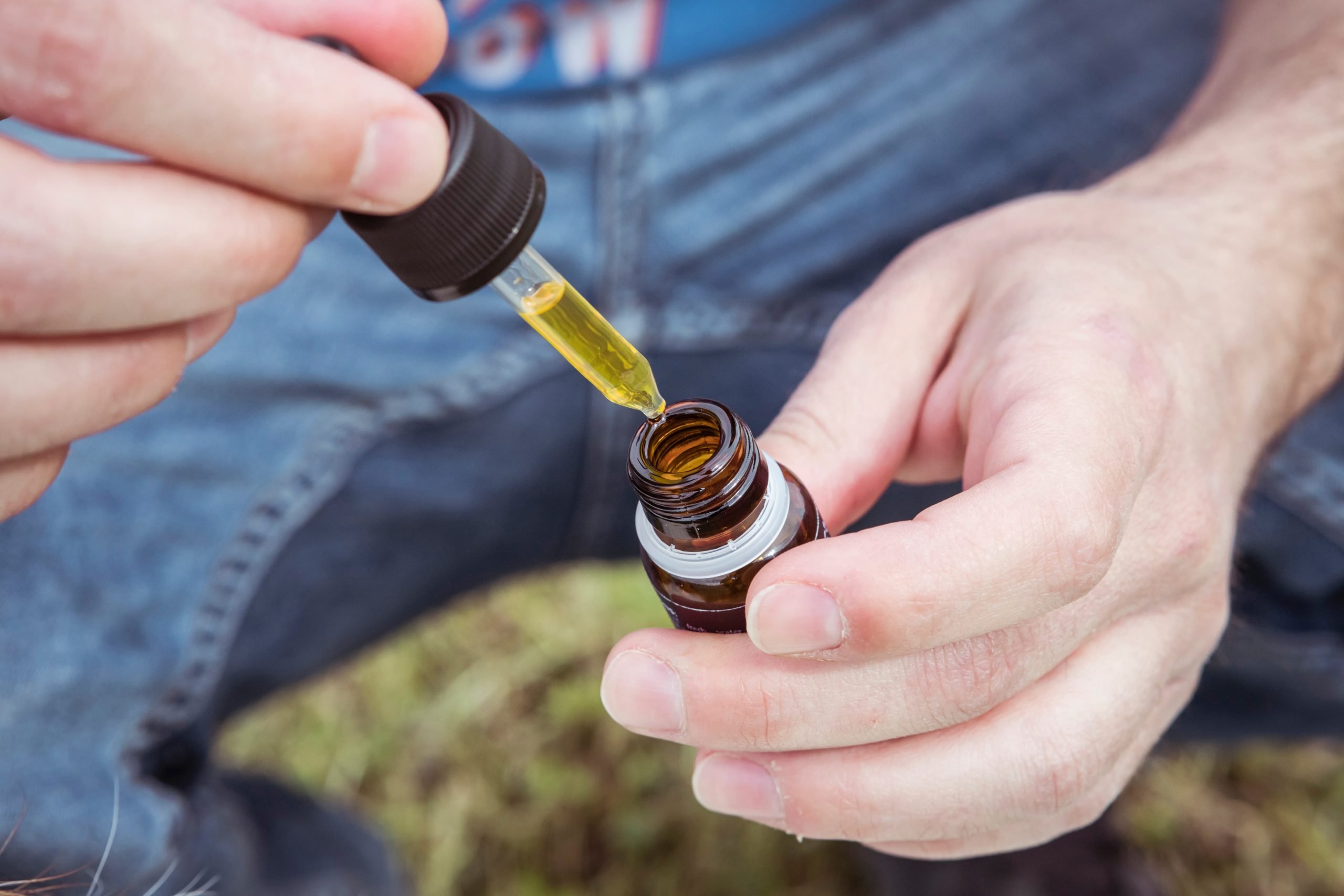
What Is Full Spectrum CBD and What Are the Differences Between CBD vs. THC?
Hemp. Weed. THC. Full spectrum CBD vs. THC.
The terminology can get confusing, but we’ve got you covered. Learn everything you need to know about cannabidiol (CBD), including what it is, how it’s used, and how it relates to other cannabis plant byproducts.
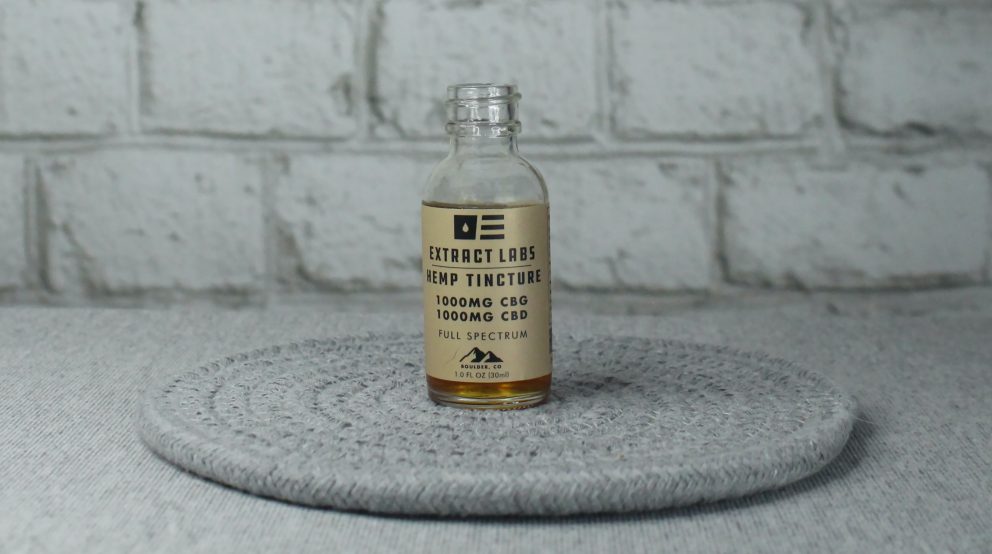
Photo by Elsa Oloffson
What Is Cannabidiol (CBD)?
Before we discuss what CBD is, we first need a basic understanding of the cannabis plant in general.
Cannabis (Cannabis sativa) is a flowering plant native to Eastern Asia. Most of the time, when people use the term “cannabis,” they’re using it to talk about weed (also known as pot or marijuana). But the truth is that weed refers to the parts of the cannabis plant used for their combination of CBD and THC properties, while cannabis refers to the plant as a whole. Think of it like the difference between talking about a palm tree and a coconut. Cannabis is like the palm tree: It includes the leaves, the trunk, and the fruit. Weed is more like the coconut. It has different parts (just as a coconut has both flesh and milk), but it’s not as all-encompassing as cannabis.
Cannabidiol, or CBD, is a chemical that’s found in cannabis plants. CBD is generally the secondary component in weed, but it can also be extracted separately. On its own, CBD has different effects than it does when combined with the THC in weed. Many of the medicinal benefits of weed actually come from the CBD; when used independently of THC, CBD can provide those same benefits without giving the user the “high” feeling more commonly associated with using weed.
What Does CBD Do?
CBD is a chemical that impacts your body. It is currently being studied for its effectiveness against a wide variety of ailments, including depression, anxiety, chronic pain, and even epilepsy.
Apply for a Medical Marijuana Card Online Today
Join over 100,000 patients who have chosen Green Health Docs as their medical cannabis doctors. We have a 99% approval rate and offer a 100% money back guarantee!
Does CBD Get You High?
On its own, CBD does not get you high. However, some research indicates that CBD may impact the effects of THC on your system.
This means that if you’re using CBD oil or taking CBD edibles on their own, you should not expect to get high. However, if you’re using products, like weed, that contain THC and CBD, the amount of CBD in the product does impact the level of your high. More CBD may make it harder for your body to metabolize the THC. As a result, the effects of THC — including feeling high — may last longer or feel more intense if you’ve also used a high level of CBD.
What Are the Side Effects of CBD?
Although CBD has a number of benefits, it’s worth noting that there are some side effects. While the majority of these side effects are relatively benign, it’s worth knowing about them before using full-spectrum CBD oil, CBD gummies, or other CBD-containing products.
Some of the most common side effects of CBD include:
- Dry mouth
- Nausea
- Fatigue
- Irritability
Like many other medications used for pain, CBD can also have blood thinning side effects. These are not major on their own. However, if you’re taking blood thinners, you should check with your doctor before adding CBD to your routine.
What Is Full Spectrum CBD Oil?
The term “full spectrum oil” refers to oils or extracts that contain multiple components. Full-spectrum CBD oil contains extracts from different parts of the cannabis plant. These extracts include:
- CBD
- Terpenes
- Essential oils
- Other chemicals, including up to 0.3% THC
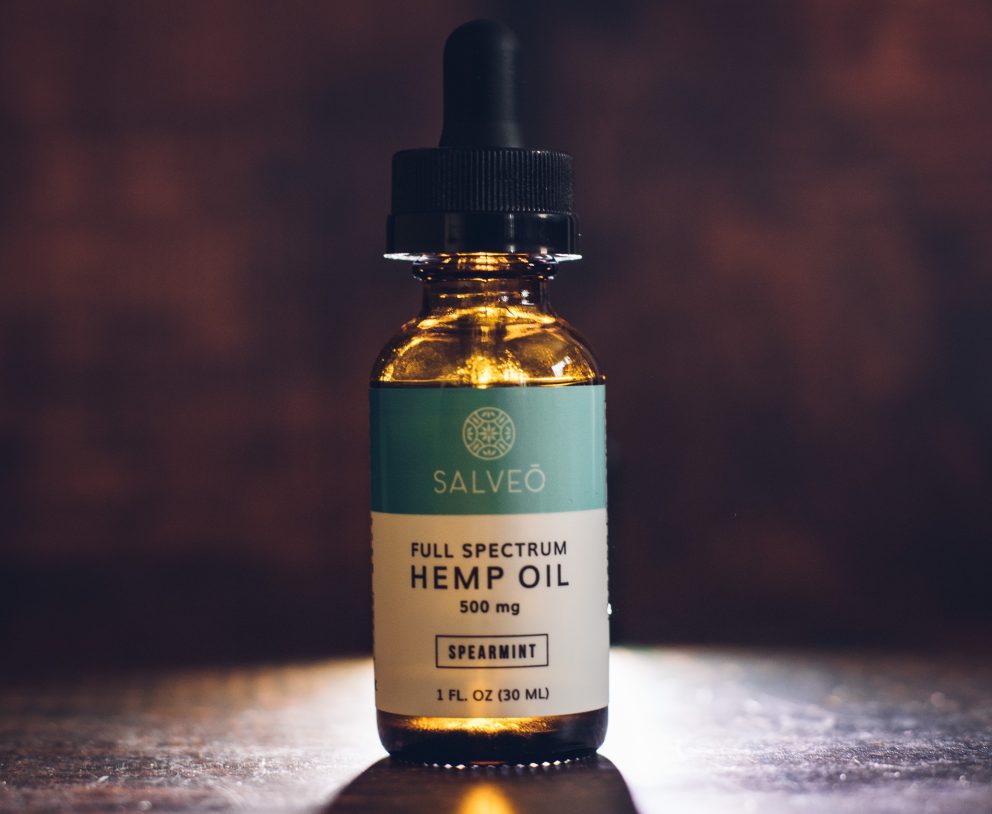
Photo by Laryssa Suaid
What Is the Difference Between Hemp and CBD?
Hemp is the term used to refer to any part of the cannabis plant that contains less than 0.3% THC. CBD, on the other hand, is a specific chemical that can be extracted from hemp, but can also be extracted from THC-containing portions of the cannabis plant or created synthetically in a lab. Hemp often contains CBD, but they are not the same thing.
What Is the Difference Between Hemp Oil and CBD Oil?
Hemp oil is made from hemp. While it may contain CBD, it generally contains less CBD than pure or full-spectrum CBD oil. Hemp oil is often made by pressing hemp seeds and may be used as a cooking oil. Hemp oil is being researched for its effectiveness against inflammatory conditions such as rheumatoid arthritis, irritable bowel syndrome, and chronic pain. Hemp oil is also high in Omega-3s, which makes hemp oil a good dietary substitution for individuals who don’t eat a lot of fish.
CBD oil, on the other hand, is made directly from CBD extracts. It usually has a higher percentage of CBD than hemp oil alone. While it’s generally less useful than hemp oil for dietary reasons, it has stronger medicinal properties than hemp oil. In addition to treating inflammation, CBD oil may be effective against depression, anxiety, and even epilepsy.
Common CBD Effects and Uses
CBD is being used in a variety of ways, both across the country and globally. Here are some of the most common uses of CBD.
Natural Pain Reliever
One of the earliest uses of cannabis was pain relief. In fact, cannabis has been used as a natural pain reliever as far back as 2900 BCE. Today, most people who use CBD as a natural pain reliever use products with a combination of CBD and THC. CBD products, including salves, creams, and tinctures, are often used medicinally to provide that same pain-relieving effect as weed without the psychoactive effects of THC-containing products.
Seizure Treatment
The only CBD-containing medicine currently recognized by the FDA is Epidiolex, which is used to treat seizures. Epidiolex is specifically prescribed for individuals with tuberous sclerosis, Lennox-Gastaut syndrome, and Dravet syndrome, among other things. It may also be used for people who have epilepsy that is not well-controlled with other treatment options.
Helps With Inflammation
One of the effects of CBD is inflammation reduction. Because of this, CBD products are often used by people with conditions like rheumatoid arthritis, chronic pain, or IBS, all of which are caused by inflammation build-up in the body.
Reduces Insomnia
The effectiveness of CBD on insomnia varies from person to person. However, CBD is often used as an alternative sleep aid, especially in conjunction with THC. CBD essential oils may be used — similar to lavender essential oils — to help ease the transition from wakefulness into sleep.
Use in Cosmetics
CBD may be used in cosmetics to make skin look younger or more vibrant. The anti-inflammatory properties of CBD make it a good choice for these types of beauty products. CBD may also be infused in beauty products to reduce conditions like acne or puffy skin.
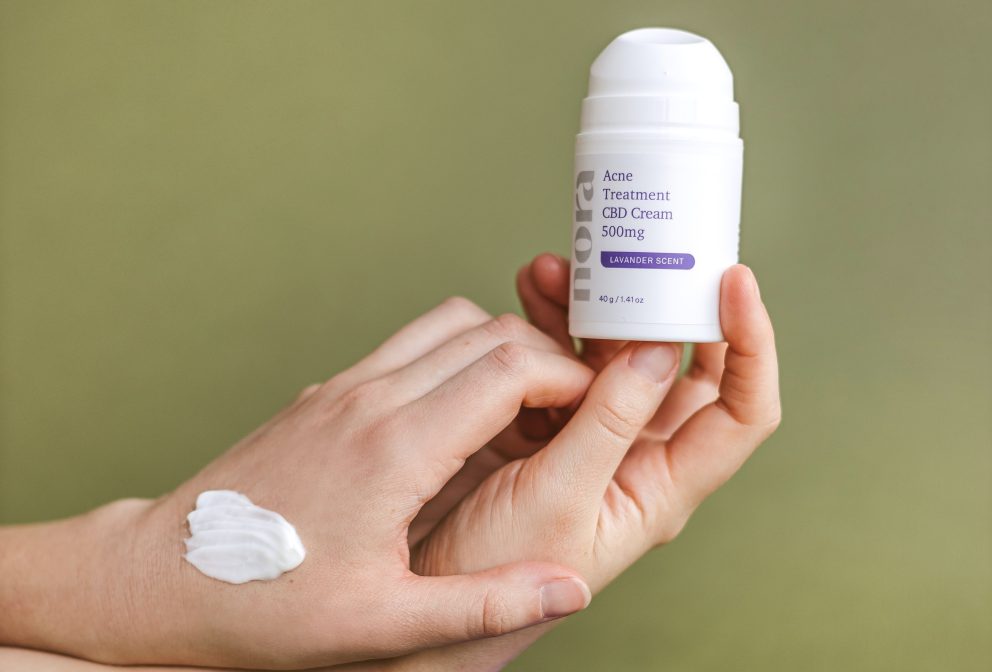
Photo by Nora Topicals
What Are the Top 10 Benefits of CBD?
Because cannabis, in all its forms, has been federally outlawed since the early 1930s and has only recently begun being legalized across the country, research into CBD effectiveness is still ongoing. However, early research into the benefits of CBD has been promising.
Here are the top 10 CBD and CBD oil benefits to consider.
1. Targets the Endocannabinoid System
The endocannabinoid system is a neuromodulatory system in the human body. This means that it has an impact on the body’s central nervous system. The central nervous system, in turn, is the system in the body that receives pain sensations and communicates those sensations to the brain.
For individuals with chronic pain conditions like fibromyalgia, or for people experiencing pain from long-term illnesses like cancer, reducing the strength of those signals can relieve pain.
CBD naturally targets the endocannabinoid system, and preliminary studies suggest that CBD can be used to target chronic pain in this way. As a result, researchers are beginning to recommend CBD — sometimes in combination with THC — to treat chronic pain conditions.
2. Reduces Cytokines in the Immune System
At its most basic level, inflammation is the body’s natural response to an irritated immune system. Whether your immune system is trying to fight off a disease or heal an injury, its first response is to send inflammatory cells and cytokines to the site. Inflammatory cells work to protect the area and minimize injury and infection, while cytokines produce more inflammatory cells.
At a basic level, inflammation is not problematic; it’s a defense mechanism that all bodies have to reduce injury and infection risks. The problem occurs when someone suffers from chronic inflammation. Just like allergies, chronic inflammation is a sign that a body’s immune system is overreacting to stimuli. Conditions like fibromyalgia and rheumatoid arthritis are often a result of this type of chronic inflammation.
CBD reduces the number of cytokines in the immune system. Fewer cytokines mean that the body can’t produce inflammatory cells as rapidly. As a result, preliminary studies suggest that CBD could be used to treat conditions caused by chronic inflammation.
3. Increases Antioxidant Absorption
Free radicals are a type of chemical that your body naturally produces. They’re a byproduct of many different things your body does, including:
- Digesting food
- Exercising
- Processing pollutants (like smog or cigarette smoke)
They can also be caused by your body being exposed to the sun.
Regardless of how they’re produced, free radicals are harmful to your body. In large quantities, free radicals can damage your cells. Free radical damage has been linked to a number of chronic conditions, including vision loss, cancer, and atherosclerosis.
Antioxidants help your body fight free radicals. Your body produces some antioxidants naturally; others enter the body through the products you choose to use and/or eat. There are thousands of antioxidants to choose from, and having a variety of antioxidants gives your body the best chance of fighting off free radicals and staying healthy.
CBD impacts the membranes that receive antioxidants, helping your body use the antioxidants more effectively against free radicals. As a result, using CBD can reduce the amount of free radicals roaming in the body and improve your health.
4. Antipsychotic Effects
Major depressive disorder (MDD) and bipolar disorder are two of the leading causes of chronic disability. In the United States, nearly a quarter (21.4%) of adults will have a mood disorder at some point in their life. Unfortunately, most current treatments for mood disorders don’t address cognitive impairments — such as executive functioning challenges, learned helplessness, inattention, and poor memory — that often cause the most disabling impact of these disorders.
A review of preclinical and clinical studies suggests that CBD has antipsychotic effects that could reduce the symptoms of major mental health conditions, including MDD and bipolar disorder. Although more robust research is needed to support this claim, the initial studies are promising. In animal studies, for example, CBD has been shown to reduce symptoms of depression, increase willingness to complete tasks and reduce symptoms of learned helplessness.
5. May Help With Cancer Management
Cancer makes people feel sick, but often, treatments for cancer make people feel worse. Chemotherapy and radiation therapy, while effective against many types of cancer, can have intense side effects.
Preliminary research suggests that CBD may be effective at fighting some of the side effects of both cancer and cancer treatments, which can improve the quality of life for people living with the disease. Some of the side effects CBD seems most helpful against include:
- Pain
- Anxiety
- Depression
- Nausea and/or vomiting
- Digestive problems
- Oral mucositis
Early studies on colorectal cancer have also shown that CBD alters the interactions between macrophages and cancer cells to reduce the size of tumors, though more research is needed to determine whether this effect is reproducible or carries across to other types of cancer.
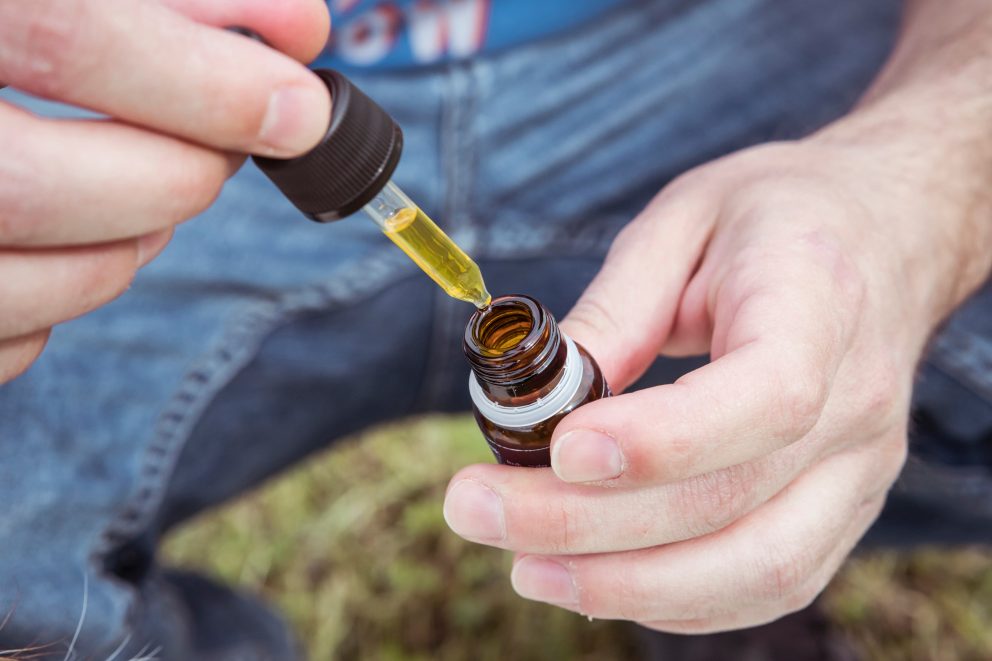
Photo by Enecta Cannabis Extracts
6. Interrupts Neural Pathways for Addictions
One of the reasons substance addiction is so debilitating is that it changes neural receptors in the brain. This is what causes cravings, especially cue cravings, which can make giving up drugs so difficult and make relapses easy.
Preliminary studies suggest that CBD can help interrupt these neural receptors, reducing the frequency and intensity of cravings. In combination with the properties of CBD that reduce anxiety and depression, this interruption of pathways can help recovering addicts tolerate recovery better, have fewer withdrawal symptoms, and be less likely to experience a relapse. Research has specifically looked at using CBD to fight opioid addictions, cocaine addictions, and psychostimulant addictions.
7. Reduce Symptoms of Diabetes
Type 2 diabetes is caused by insulin resistance in the body. It is among the top 10 causes of death in the United States. CBD has been shown to combat complications of type 2 diabetes by helping regulate blood glucose levels. The anti-inflammatory benefits of CBD may also help individuals with diabetes reduce swelling, which may improve overall quality of life.
People with diabetes have also been shown to suffer from constriction in the blood vessels. But CBD was also shown to help constricted arteries relax. Although more research is necessary, preliminary studies — especially preliminary studies on rats — suggest that CBD may offer a solution for this common diabetes complication.
8. Reduce Rates of Insomnia
Insomnia can be caused by a number of factors. But for people with racing thoughts at bedtime, anxiety is often one of the culprits. CBD is known for helping ease anxiety and calming the brain. High-CBD strains of cannabis may be especially good at easing the body into a good night’s sleep.
Early research shows that a majority of patients presenting with anxiety or trouble sleeping benefitted from adding CBD to their diet. One caveat is that the effectiveness of this treatment for insomnia fluctuated toward the end of the study. Additional studies could help determine whether CBD is an effective long-term treatment for insomnia or whether its use is limited. However, for individuals with occasional bouts of insomnia, research supports using CBD as a sleep aid.
9. Improve Brain Activity
Conditions like dementia, Alzheimer’s, and Parkinson’s disease can impair brain activity, often resulting in a limited memory for certain things. However, it can also come out as aggression, inflexibility, and confusion.
Research suggests that CBD may help improve brain function by protecting the receptors that cause inflammation in the brain. Combined with CBD’s calming effects and the reduced cytokines in the system, this can lead to increased brain activity and reduced symptoms for people with these types of neurocognitive disorders.
Some studies also suggest that CBD — especially when used in conjunction with THC — may actually be able to prevent Alzheimer’s disease by reducing free radicals in the body, reducing overall inflammation, and increasing brain cell survival.
10. Improves Bone Health
Move over, milk: CBD may be the new tonic for strong bones.
Researchers are currently exploring CBD as a possible treatment for osteoporosis as it has been shown to improve bone health.
One reason for this is that the central nervous system actually plays a big role in bone health. By impacting the endocannabinoid system, CBD may prevent bone loss and increase bone mass.
But CBD takes this a step further by helping bones repair when they do get damaged. Initial research with rats suggests that CBD can actually make bones heal more quickly. Although more research needs to be done to see if this effect translates to humans, it suggests that CBD may be effective at both preventing and treating osteoporosis and other related conditions.
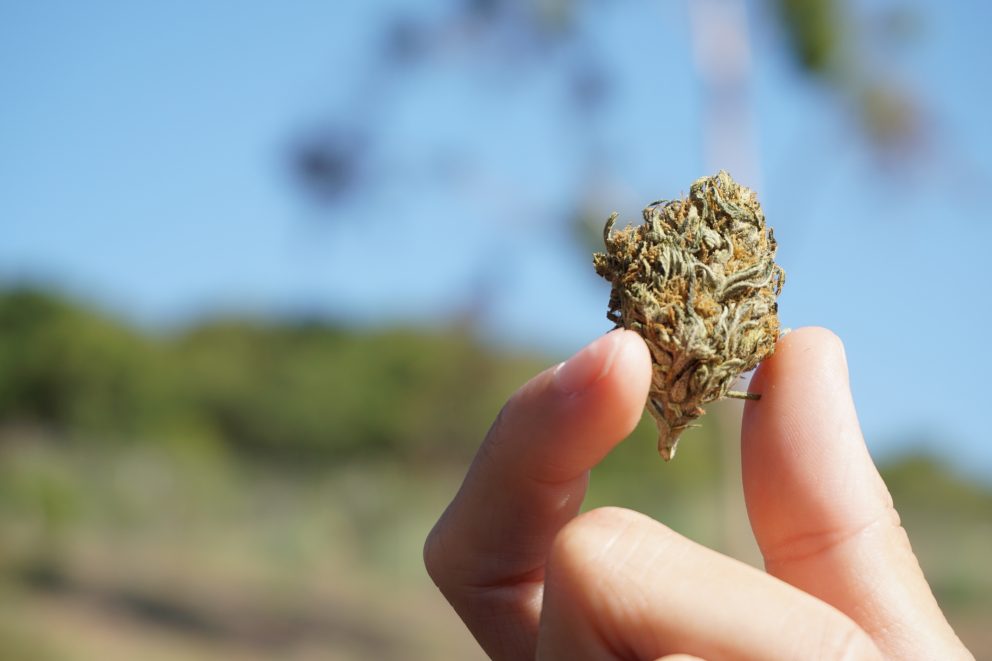
Photo by Elsa Oloffson
What Is the Difference Between CBD vs. THC?
CBD and THC are both chemicals found in cannabis plants, but they have very different effects on the human body.
CBD has a medicinal impact on the human body. It can reduce inflammation, help with mental health conditions, improve sleep, and even treat epilepsy.
THC, on the other hand, has a psychoactive impact on the human body. While it can help with conditions like depression or anxiety, THC is often used because of the high it produces. This high can make users feel good and may be used, similarly to alcohol, as a means to relax, unwind, and socialize.
CBD and THC can be extracted from cannabis plants separately. However, smokable weed and many edibles contain both CBD and THC in different ratios. Finding the right product for your needs will depend on what condition(s) you’re trying to treat and your overall purpose in using these products.
Common CBD (Cannabidiol) FAQs
What Is CBD Oil?
CBD oil is a product made with CBD extract and some sort of base oil. CBD oil is often used as a base for other CBD products, including CBD edibles and salves. It is used as a natural or alternative remedy for a number of different medical conditions.
What Is CBD Salve?
CBD salve is an ointment made with CBD oil and wax, though it may also contain hemp, essential oils, or other chemicals. CBD salves are often used for inflammation and pain.
What Is CBD Isolate?
CBD isolate is a crystallized CBD extract. It is designed to be the most pure form of CBD you can get, and is not supposed to contain THC or other cannabinoids. CBD isolate is often ground up and sold as a powder.
What Is CBD Flower?
CBD flower is a substance made from industrial hemp that can be smoked like weed but does not contain high concentrations of THC. CBD flower is an option for users who enjoy smoking socially or who want to smoke CBD to receive medicinal benefits, but who are not looking to get high.
What Is a CBD Tincture?
CBD tincture is a product made from CBD oil that has been steeped in 120- to 140-proof alcohol. CBD tinctures are often designed to be used under the tongue, which allows the CBD to be absorbed more quickly than with CBD oil. However, because of the high level of alcohol in CBD tinctures, some need to be diluted before they’re used.
What Is a High CBD Percentage?
A high CBD percentage depends on what you’re using the CBD to treat and your personal tolerance level. In general, however, cannabis plants with 4% CBD or more are considered CBD-rich strains. In contrast, high-THC strains of cannabis, which are primarily used for getting high, usually contain less than 0.3% CBD.
 This article has been reviewed by Dr. Anand Dugar, an anesthesiologist, pain medicine physician and the founder of Green Health Docs. Graduating from medical school in 2004 and residency in 2008, Dr. Dugar has been a licensed physician for almost 20 years and has been leading the push for medical cannabis nationwide.
This article has been reviewed by Dr. Anand Dugar, an anesthesiologist, pain medicine physician and the founder of Green Health Docs. Graduating from medical school in 2004 and residency in 2008, Dr. Dugar has been a licensed physician for almost 20 years and has been leading the push for medical cannabis nationwide.
